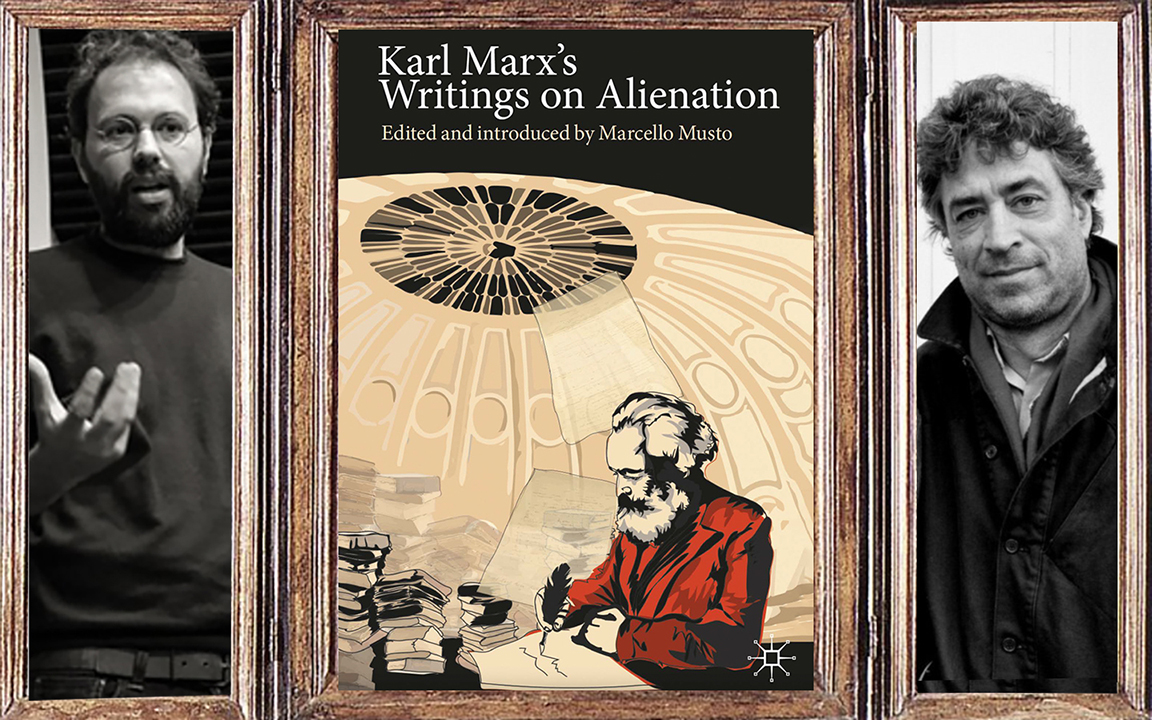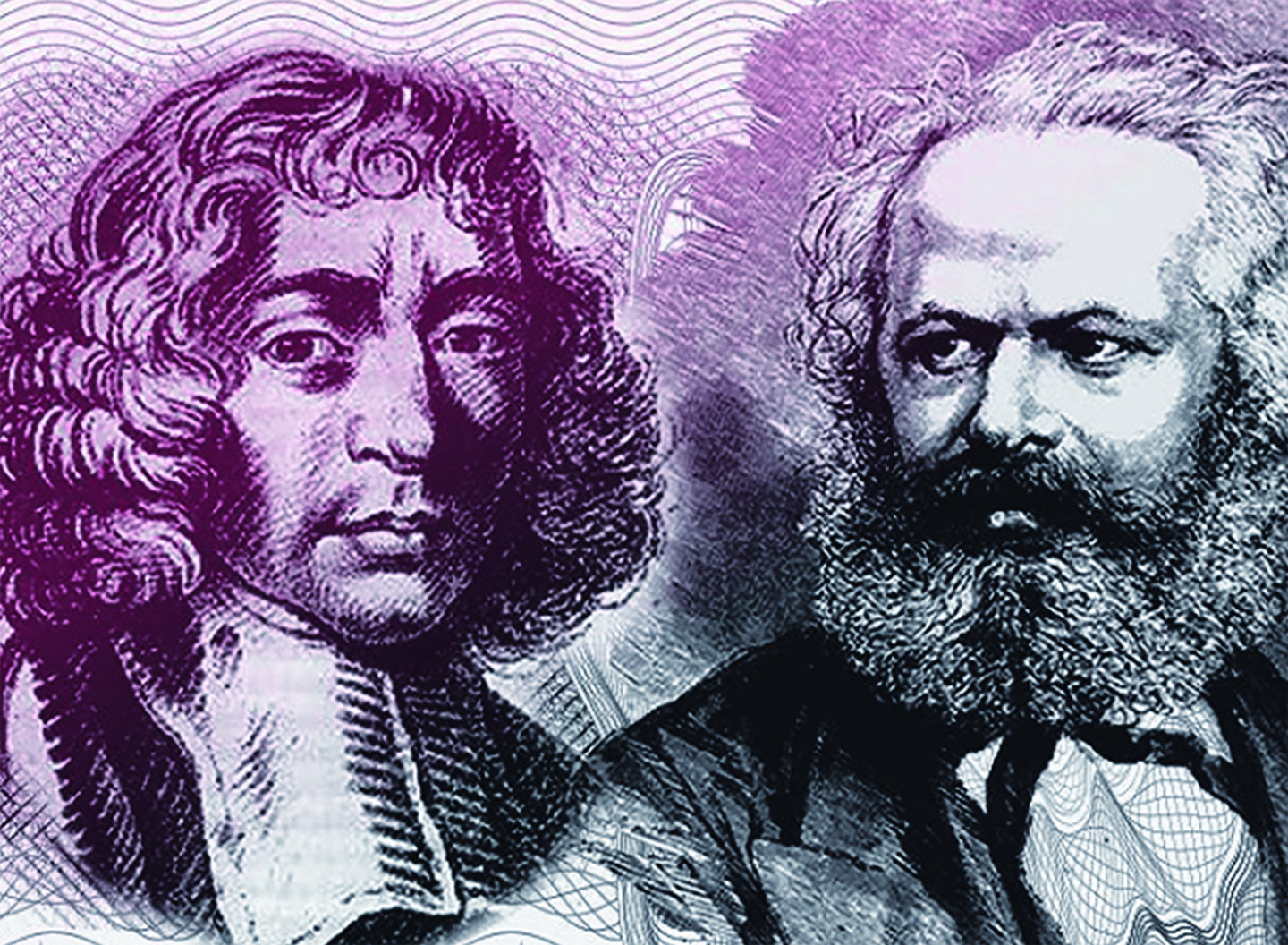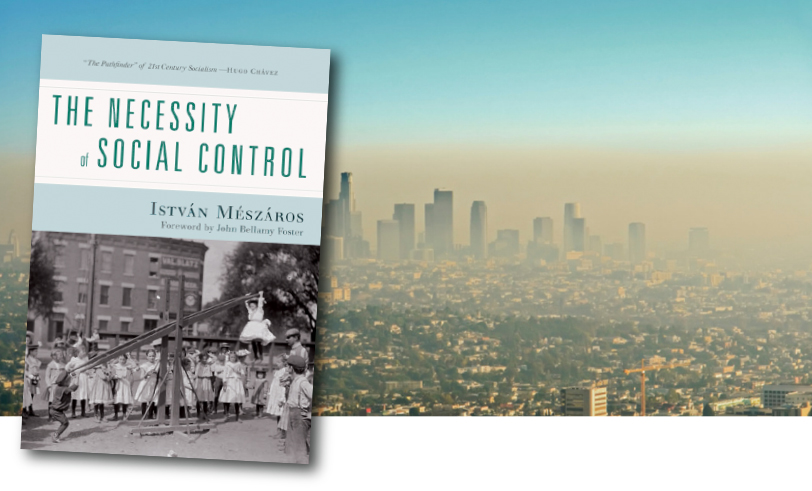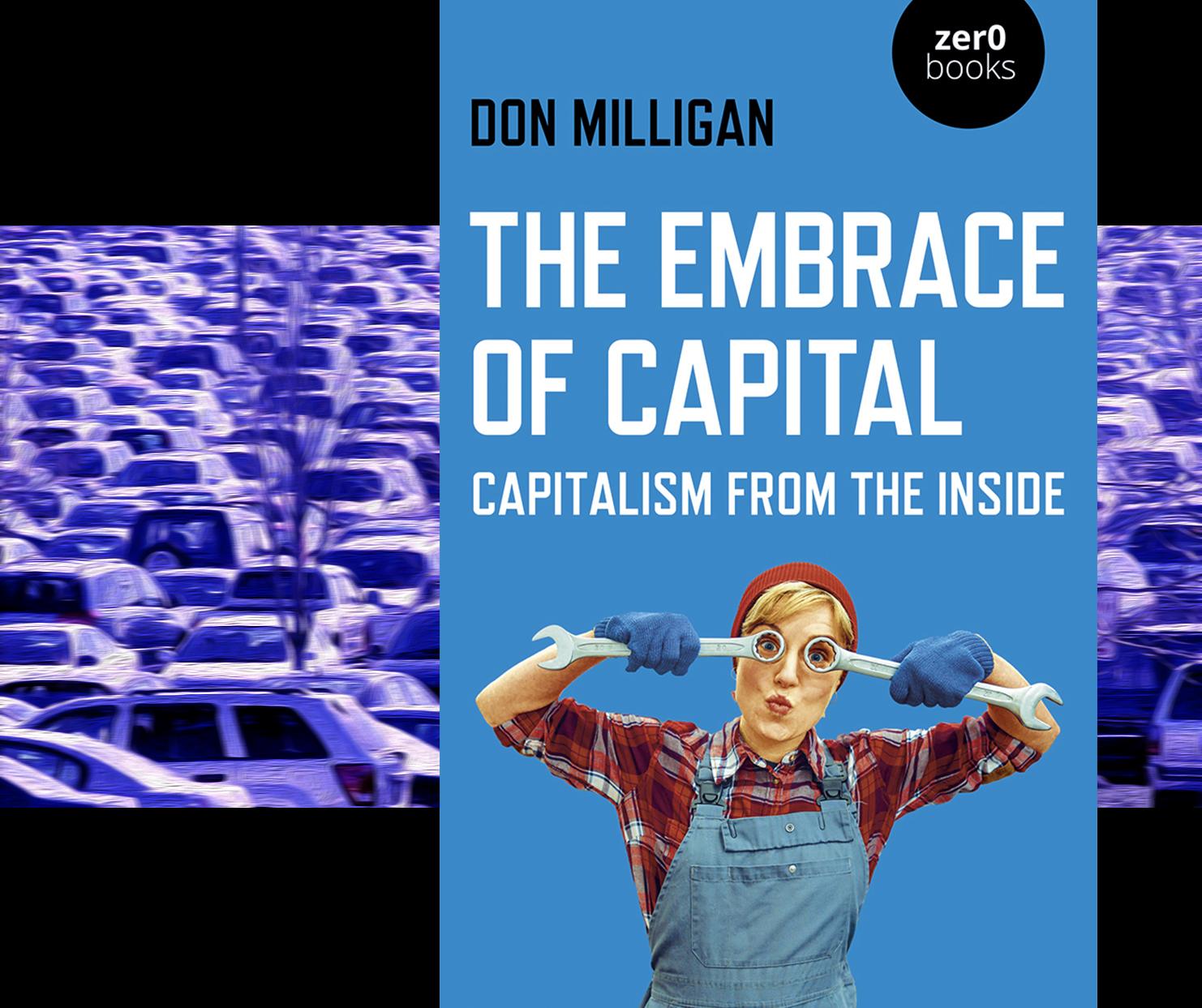Das Kapital
Karl Marx’s Writings on Alienation: A discussion with Marcello Musto and Michael Hardt
The event marks the publication of “Karl Marx’s on Alienation,” edited by Marcello Musto. This is an essential volume. The introduction written by Marcello provides a guide to the concept of alienation prior to Marx, Marx's essential thought and writings over three periods of his working life. This brief quote from Volume Three of CAPITAL is one of many presented and discussed: “The realm of freedom really begins only where labor determined by necessity and external expediency ends; it lies by its very nature beyond the sphere of material production proper. Just as the savage must wrestle with nature to satisfy his needs, to maintain and reproduce his life, so must civilized man, and he must do so in all forms of society and under all possible modes of production. This realm of natural necessity expands with his development, because his needs do too; but the productive forces to satisfy these expand at the same time. Freedom, in this sphere, can consist only in this, that socialized man, the associated producers, govern the human metabolism with nature in a rational way, bringing it under their collective control instead of being dominated by it as a blind power; accomplishing it with the least expenditure of energy and in conditions most worthy and appropriate for their human nature. But this always remains a realm of necessity. The true realm of freedom, the development of human powers as an end in itself, begins beyond it, though it can only flourish with this realm of necessity as its basis. The reduction of the working day is the basic prerequisite.” —Karl Marx
Come join Michael Hardt and Marcello Musto as they discuss with each other and those present from this essential volume for study—and practice.
The Hard Right and the Political Parties of Capital
2nd in the Socialist Register 58 Series: Old Polarizations, New Contradictions: The Crisis of Centrism
BILL FLETCHER on Trump and the Danger of Right-wing Populism in the US
SAMIR GANDESHA on Identity Crisis: The Politics of False Concreteness
INGAR SOLTY on Market Polarization Means Political Polarization
Marx and Spinoza: Connections and Provocations
Readers of contemporary theory will perhaps not be surprised to see the name Spinoza paired with that of Marx. Ever since Louis Althusser argued that he, and his cowriters of Reading Capital, were Spinozists rather than structuralists, there has been an increased inquiry into the points of connection between Marx and Spinoza. It might even be possible to say that what the Hegel/Marx connection was to a previous generation, animating the writings of Adorno, Sartre, Lukacs, etc. the Marx/Spinoza connection is to a current collection of philosophers ranging from Althusser, and the members of his circle such as Étienne Balibar and Pierre Macherey, to Antonio Negri, Frédéric Lordon, Warren Montag, and Hasana Sharp.
The Necessity of Social Control by István Mészáros
“We are living in a time of unprecedented historical crisis, which affects all forms of the capital system, not just capitalism. It is easy to understand, then, that the only thing that could produce a viable solution to the contradictions that we have to face would be a radical socialist alternative to capital’s mode of social metabolic control.” István Mészáros
The Necessity of Social Control by István Mészáros
“We are living in a time of unprecedented historical crisis, which affects all forms of the capital system, not just capitalism. It is easy to understand, then, that the only thing that could produce a viable solution to the contradictions that we have to face would be a radical socialist alternative to capital’s mode of social metabolic control.” István Mészáros
The Embrace of Capital with author Don Milligan
The "spectre of communism" which Karl Marx confidently evoked in 1848 is now nothing more than a ghostly and ghastly nightmare, without form or substance. This is because working people have developed a love-hate relationship with capitalism. They hate insecurity, inequality, and greed, and love civic and political freedom. They love mass consumption, and accept the logic of commerce. Barreling along through wars, revolutions, epidemics, and crises of all sorts, working people in their millions have consistently dumfounded and dismayed the left, by their refusal to countenance any alternative to the capitalist mode of life. We have to ask: Is it possible to reverse this reality, and once again talk of the necessity of communism?
The Necessity of Social Control by István Mészáros
“We are living in a time of unprecedented historical crisis, which affects all forms of the capital system, not just capitalism. It is easy to understand, then, that the only thing that could produce a viable solution to the contradictions that we have to face would be a radical socialist alternative to capital’s mode of social metabolic control.” István Mészáros





